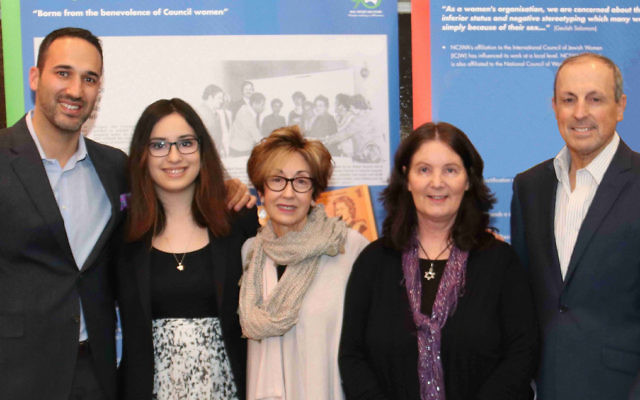Tackling anti-Semitism
When confronted with casual anti-Semitism, “It is unfortunately our instinct to err on the side of saying nothing,” said NSW Jewish Board of Deputies (JBOD) CEO Vic Alhadeff. That was the focus of the panel discussion held at the National Council of Jewish Women of Australia (NCJWA) in conjunction with the JBOD last week.
WHEN confronted with casual anti-Semitism, “it is unfortunately our instinct to err on the side of saying nothing,” said NSW Jewish Board of Deputies (JBOD) CEO Vic Alhadeff. That was the focus of the panel discussion held at the National Council of Jewish Women of Australia (NCJWA) in conjunction with the JBOD last week.
Unlike other forms of anti-Semitism, explained Executive Council of Australian Jewry (ECAJ) public affairs director and moderator Alex Ryvchin, casual anti-Semitism doesn’t involve violence and is not public discourse; it is much more subtle, often disguised as a joke or backhanded compliment.
ECAJ research officer Julie Nathan, NCJWA co-vice-president Victoria Nadel and AUJS national convener Samantha Khavin joined Alhadeff in debating what casual anti-Semitism looks like and options for combating it.
Nathan recalled sitting next to an Armenian woman at a bus stop, who said, “Russia is poor because the Jews take all the money.” Nathan pulled out her Magen David and said, “I’m a Jew,” to which the woman replied, “Oh, the Jews are so clever!”
In terms of casual racism, Nadel said all it takes is to say the word “Jew” in a certain tone and it’s already an insult.
“We’ve had 1600 years of negative stereotyping,” she reflected. “And lately it’s expanded to include an obsessional criticism of Israel, with no regard to the hundreds of other land disputes worldwide.”
Khavin shared incidences of casual anti-Semitism on university campuses, saying that student politicians often engage in “wilful ignorance” and erase Jewish students from their platforms while pandering to other minorities. She recommended “responding to casual anti-Semitism with casual education”.
Alhadeff assured the community that the JBOD “is responding with education, and hopefully -pre-empting and preventing incidents of -anti-Semitism”.
“Holocaust studies is taken across the state. The HSC has been pushed back for Yom Kippur, Succot and Simchat Torah. There has been a positive, receptive response to the JBOD Harmony Program,” he noted.
But Nadel maintained that education is not enough.
“We are too polite as a community. We have heard that the Jews killed Christ every day for 2000 years. It’s insulting and exhausting. We need to have more confronting conversations.
“Children go to Christian scripture so that the other children don’t find out that they are Jewish. Teachers and principals don’t take complaints seriously because they don’t want to rock the boat and they don’t want their school to look bad.”
Khavin disagreed, insisting, “The most that is possible is being done. We are an organised community and we know what we want. That is our strength.
“The most important thing is to take action, so that our children and grandchildren don’t have to deal with anti-Semitism.”
YAEL BRENDER


comments